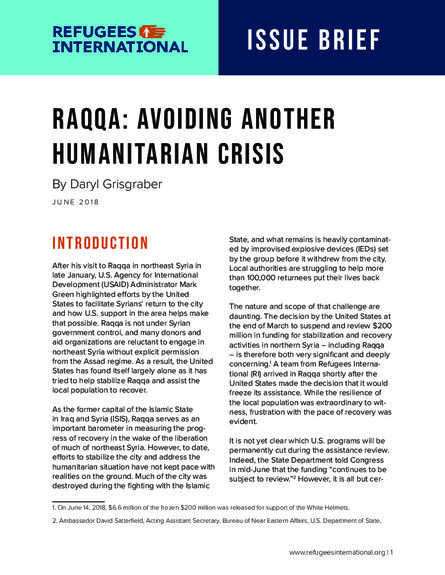
As the former capital of the Islamic State in Iraq and Syria (ISIS), Raqqa serves as an important barometer in measuring the progress of recovery in the wake of the liberation of much of northeast Syria. However, to date, efforts to stabilize the city and address the humanitarian situation have not kept pace with realities on the ground. Much of the city was destroyed during the fighting with the Islamic State, and what remains is heavily contaminated by improvised explosive devices (IEDs) set by the group before it withdrew from the city. Local authorities are struggling to help more than 100,000 returnees put their lives back together.